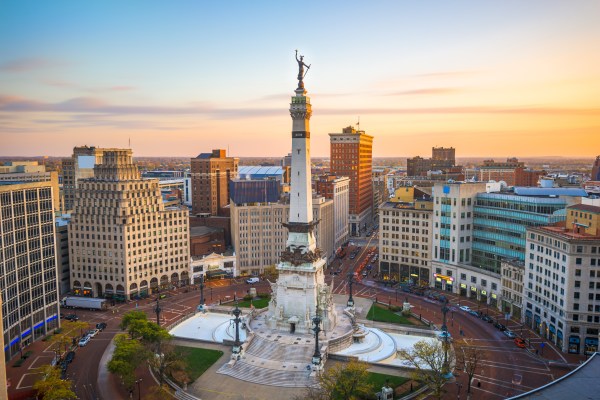The “birthplace of California” is now California’s second city in terms of size and population (after Los Angeles). It does, however, offer multiple attractions to all kinds of organizations. This means it can be highly beneficial to use a San Diego data center. Here is a brief guide to what you need to know about choosing a San Diego data center.
Why choose a San Diego data center?
Probably the most obvious reason to choose a San Diego data center is to have access to San Diego’s customer base. This includes businesses across just about all industries. San Diego is particularly strong in technology, healthcare and biotech, and defense and aerospace. It also has about well over a million permanent residents plus students and tourists.
Using a San Diego data center can also be a convenient way to connect with users in other key business hubs both in California and beyond. Not only is San Diego close to Las Vegas (Nevada) and Phoenix (Arizona), but it’s also near the Mexican border.
As a useful bonus, San Diego has a very mild climate. This means that data center climate control is relatively simple. In particular, a San Diego data center is unlikely to need high levels of cooling. It also means that a San Diego data center is at minimal risk of environmental hazards.
How to choose a San Diego data center?
The process of choosing a San Diego data center is much the same as the process of choosing a data center anywhere else. Here is a straightforward guide to the steps and considerations.
Define your needs, wants, priorities, and budget
The result of this exercise will set the framework for your search. It’s therefore important to be as thorough and accurate as possible. It’s also important to think about future possibilities. While it may be too early to define these exactly, you should try to make as many educated predictions as you can.
Here are the key factors most organizations will need to consider.
The type of data center: There are three main types of data centers. Enterprise data centers are built and used by a single organization. Colocation data centers offer shared facilities for multiple businesses. Public cloud data centers provide off-premises infrastructure managed by a third party.
Compliance: Many organizations will need to comply with certain data security compliance programs. Others may voluntarily look for a San Diego data center that can comply with data security compliance programs and/or data security frameworks. This can be to reassure existing or prospective customers. It can also be to future-proof their operations.
Security: Many organizations will need to comply with certain data security compliance programs. Others may voluntarily look for a San Diego data center that can comply with data security compliance programs and/or data security frameworks. This can be to reassure existing or prospective customers. It can also be to future-proof their operations.
Tier rating: Defined by the Uptime Institute, a data center’s tier rating classifies data centers based on their infrastructure’s redundancy and reliability. Ratings range from Tier I (basic) to Tier IV (highest), indicating the facility’s ability to maintain operations even during maintenance or unexpected events.
Data center infrastructure: Data center infrastructure refers to the components supporting the ongoing functioning of the data center. This includes power sources, environmental controls, and some elements of networking and security systems.
Operational infrastructure: Operational infrastructure refers to the physical components supporting IT operations, such as servers, storage systems, and most network infrastructure.
Location: Location is a critical factor in choosing a San Diego data center. Proximity to business operations and accessibility for maintenance are crucial considerations. Additionally, the geographical location impacts the data center’s vulnerability to environmental disasters.
Assessing a San Diego data center vendor
Checking the aforementioned points will give you a good basis to determine whether or not a particular San Diego data center would be a good fit for your needs. In the real world, however, a data center facility is only as good as the vendor that runs it.
Reputation and experience: A positive reputation and extensive experience often indicate reliability and expertise in meeting clients’ needs.
Support for scalability and customizations: A data center should offer scalable solutions and the ability to customize services based on a client’s specific requirements, ensuring that the infrastructure can adapt to changing business demands.
Service, support, and maintenance options: What service offerings does the vendor provide? What level of technical support can they offer? What are their maintenance procedures and schedules?
Contract terms and flexibility: Transparent and flexible contract terms are essential for aligning the data center services with the client’s business goals.
Service guarantees: Service guarantees, such as uptime commitments and performance assurances, provide clients with confidence in the data center’s reliability and commitment to maintaining optimal service levels.







